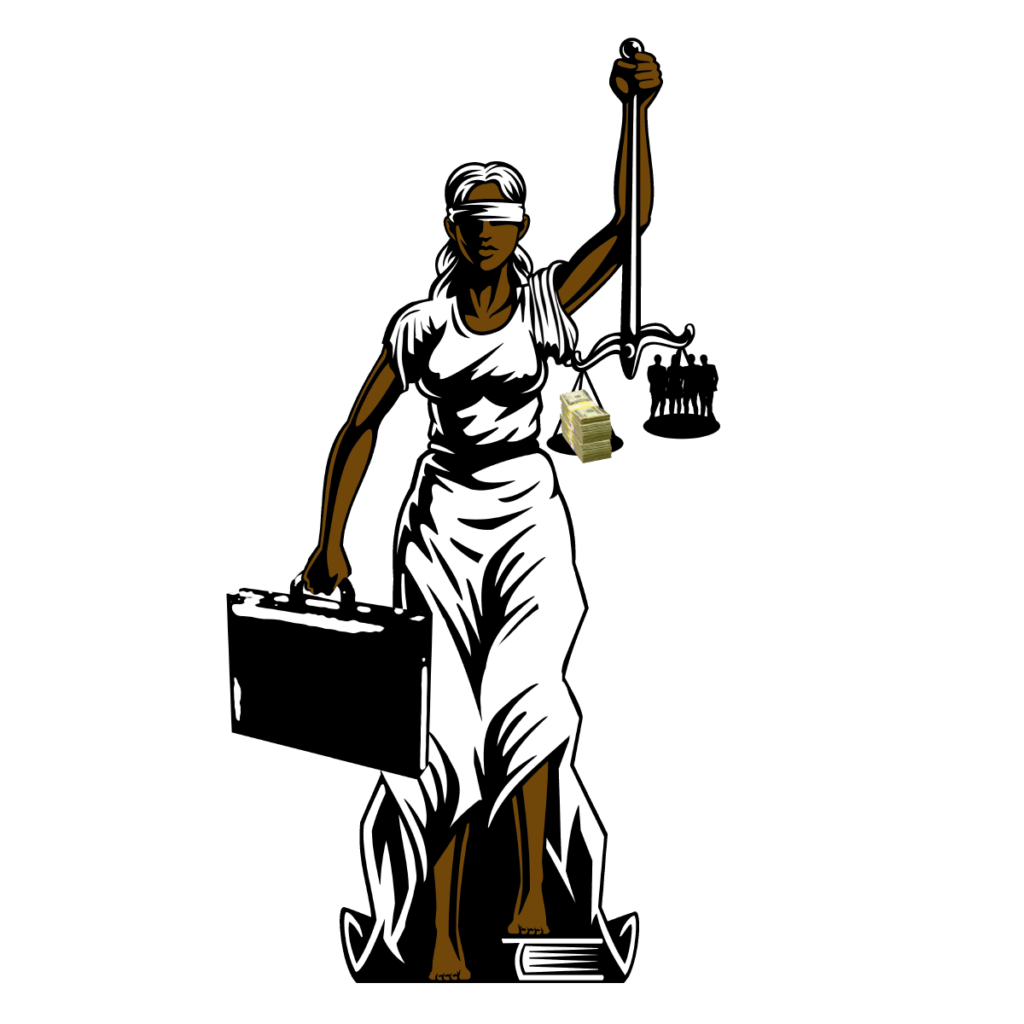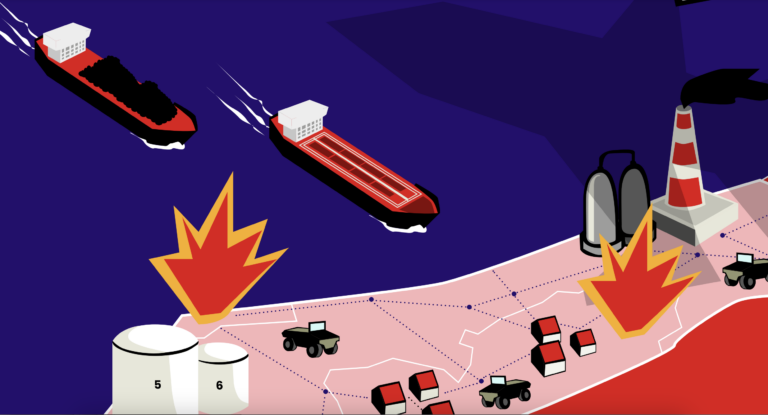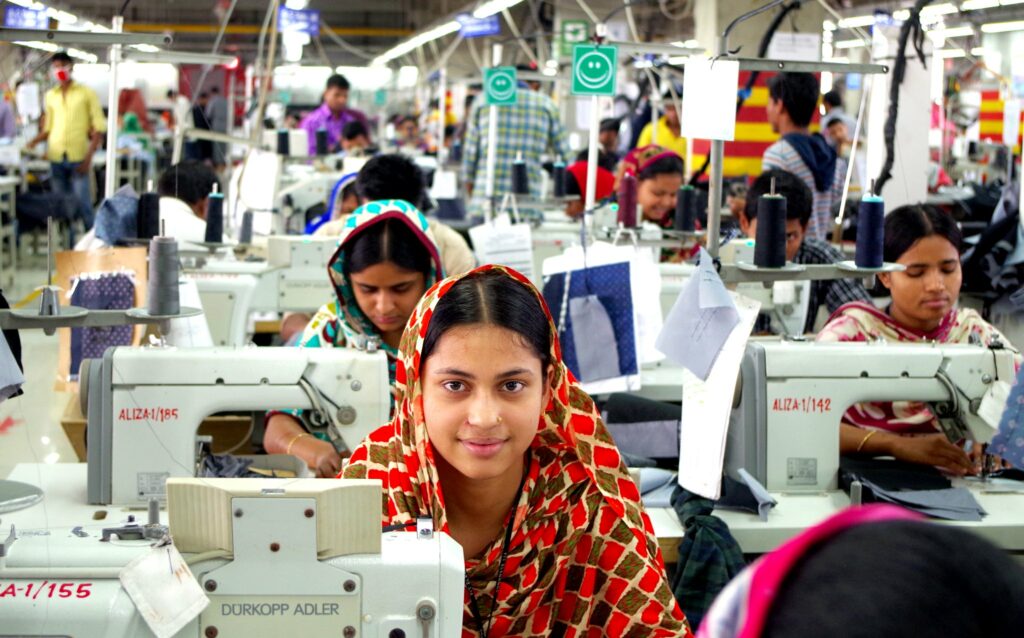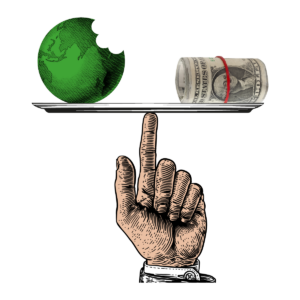Human rights due diligence
Corporations have a responsibility to respect human rights wherever they operate. Yet business-related human rights and environmental abuses remain all too common. Around the globe, people face enormous challenges in securing respect for their rights and receiving remedies for corporate-related abuses.
Our work at SOMO seeks to address the global governance gaps that allow multinational corporations to operate with impunity. We monitor the implementation of international frameworks(opens in new window) , including the United Nations Guiding Principles on Business and Human Rights and the Organisation for Economic Co-operation and Development (OECD) Guidelines for Multinational Enterprises on Responsible Business Conduct, to address the conduct of multinational enterprises concerning human rights and the environment.

While the systems that protect and advance the rights of multinational corporations are robust, the systems that empower people to claim and defend their rights in the face of negative corporate impacts are frequently weak. Our goal is to ensure that companies can be held accountable and legally liable for human rights violations and adverse effects across the value chain.
We do this by:
- promoting binding legislation and selectively supporting powerful soft law standards and frameworks such as recommendations, guidelines and codes of conduct that can pave the way for hard rules and laws;
- aligning closely with partners and allies to advance more robust regulations or enforcement at the national and international levels;
- focusing on several global regulatory initiatives that offer meaningful opportunities to be impactful;
- supporting efforts to ensure strong mandatory human rights and environmental due diligence at the Dutch and European Union levels;
- working on strengthening and strategically using the OECD Guidelines(opens in new window) ; and
- tactically engaging on a legally binding UN Treaty to protect citizens worldwide against corporate human rights abuses.
Highlighted Publications
-
Powering injustice Published on:
 Lydia de LeeuwPosted in category:Publication
Lydia de LeeuwPosted in category:Publication Lydia de Leeuw
Lydia de Leeuw
-
Chain of consequences Published on:
 Joshua RosenzweigPosted in category:Publication
Joshua RosenzweigPosted in category:Publication Joshua Rosenzweig
Joshua Rosenzweig
-
Fuelling the flames in Gaza Published on:
 Lydia de LeeuwPosted in category:Publication
Lydia de LeeuwPosted in category:Publication Lydia de Leeuw
Lydia de Leeuw
Mandatory human rights and environmental due diligence
Companies are responsible for conducting human rights due diligence along their value chains, according to authoritative international standards on business, human rights, and the environment. However, studies have shown that companies across all sectors are failing to conduct adequate human rights and environmental due diligence for their downstream value chains, resulting in numerous examples of adverse human rights and environmental impacts.
Our work at SOMO aims to strengthen key soft law standards and to turn these standards into hard rules for business.
The Shell climate verdict
The May 2021 verdict in the climate case against Shell has rightly been called historic: the oil major must drastically reduce its CO2 emissions regardless of the actions or policies of the Dutch government. But the ruling is important for other reasons too: the court based its verdict to a large extent on two soft law standards – the UN Guiding Principles on Business and Human Rights (UNGPs) and the OECD Guidelines for Multinational Enterprises (OECD Guidelines).

The European Union has been working on various initiatives to promote responsible business conduct and corporate social responsibility. In June 2023, the European Parliament agreed on a proposed directive on Corporate Sustainability Due Diligence (opens in new window) (CSDDD). If implemented, the directive’s goal will be to ensure that companies conduct thorough assessments of their operations and supply chains to identify and address potential risks of human rights violations, environmental harm, or violations of international labour standards.
Our work at SOMO aims to secure the strongest possible language in the EU CSDDD. We are providing input directly into the policy process through our participation in the European Coalition for Corporate Justice(opens in new window) (ECCJ) board, which leads civil society organisation (CSO) advocacy for strong human rights and environmental due diligence in the EU.
We also strategically contribute to CSO advocacy on Dutch due diligence legislation in the Netherlands.

Ensuring strong guidelines
Corporations are responsible and should be held accountable for the impact of their business activities on people, societies, and the environment. A growing number of initiatives and standards aim to encourage corporate accountability – from corporate codes of conduct and certification schemes to the above-mentioned OECD Guidelines for Multinational Enterprises on Responsible Business Conduc(opens in new window) t and the United Nations Guiding Principles on Business and Human Rights(opens in new window) .
At SOMO, we evaluate the effectiveness of these initiatives by examining the degree to which they contribute to responsible corporate behaviour, corporate accountability, and access to remedy for those who have been impacted by corporate wrongdoing.
The OECD Guidelines are recommendations from governments to multinational enterprises on how to do business sustainably and responsibly. They set standards for responsible business conduct across various issues such as human rights, labour rights, and the environment. Governments of OECD member countries are also required to establish a grievance mechanism to help resolve disputes between companies covered by the OECD Guidelines and people harmed by irresponsible business conduct.
The OECD Guidelines were updated in June 2023, following extensive advocacy by the international OECD Watch network(opens in new window) , which is hosted by SOMO. The updated Guidelines represent a significant win for civil society on crucial corporate accountability topics such as climate change, indigenous rights, digital rights, and biodiversity. They will be a strengthened tool for civil society to hold corporations to account. As well as helping to secure the strongest possible revision of the OECD Guidelines, we are also focusing on ensuring the effective implementation of the standards in the Guidelines.
We will continue to seek to secure coherence with and correlation between the newly revised Guidelines and other processes around mandatory human rights and environmental due diligence, especially in relation to the EU CSDDD.
-
Good Policy Paper (pdf, 641.35 KB)
Advocating for a legally binding UN Treaty
At SOMO, we often see how victims of corporate human rights abuses have limited or no access to legal means in cases against multinational enterprises. The international structure of multinational enterprises allows discrepancies between differing jurisdictions to be exploited. In the face of increasing globalisation, we believe that a legally binding UN Treaty is the way forward to protect citizens worldwide against corporate human rights abuses.
Now there is a unique opportunity to improve corporate conduct and ensure that victims of corporate abuse have adequate access to justice: the UN binding Treaty on Business and Human Rights(opens in new window) . In June 2014, a ground-breaking resolution was adopted by the Human Rights Council that established an Inter-Governmental Working Group (IGWG) to develop an “international legally binding instrument on transnational corporations and other business enterprises concerning human rights”.
We at SOMO are one of the many non-governmental organisations following the discussions in Geneva. We are working together with partner organisations to advocate for a treaty that will effectively contribute to access to justice and remedy for victims of business-related human rights abuses. We are also one of five organisations conducting advocacy in the Netherlands on a legally binding instrument regulating corporations at the UN level.
We believe it is necessary for the EU to engage in these discussions at the UN level. We will continue to advocate for the EU to agree on a negotiation mandate to engage in the UN Treaty process and to put forward progressive positions around developing the Treaty text in the negotiations.
Do you need more information?
-

Joseph Wilde-Ramsing
Advocacy Director -

Virginia Sandjojo
Senior Policy and Advocacy Officer
Latest updates
-
 CSDDD Datahub reveals law covers fewer than 3,400 EU-based corporate groupsPosted in category:News
CSDDD Datahub reveals law covers fewer than 3,400 EU-based corporate groupsPosted in category:News David Ollivier de LethPublished on:
David Ollivier de LethPublished on: -
 Additional evidence filed against Booking.com for profiting from illegal settlementsPosted in category:News
Additional evidence filed against Booking.com for profiting from illegal settlementsPosted in category:News Lydia de LeeuwPublished on:
Lydia de LeeuwPublished on: -
 The hidden human costs linked to global supply chains in ChinaPosted in category:News
The hidden human costs linked to global supply chains in ChinaPosted in category:News Joshua RosenzweigPublished on:
Joshua RosenzweigPublished on:
Related Topics
Discover more of SOMO’s work and publications.






